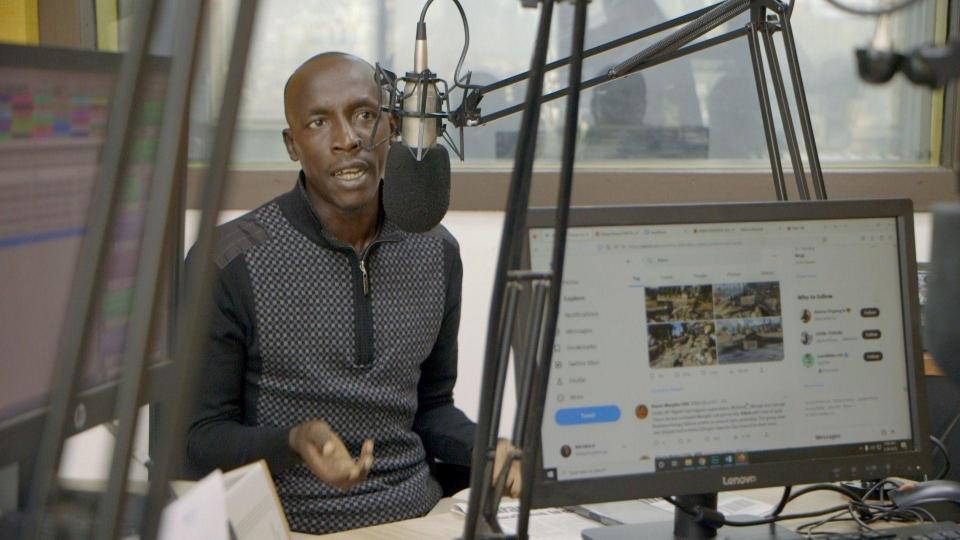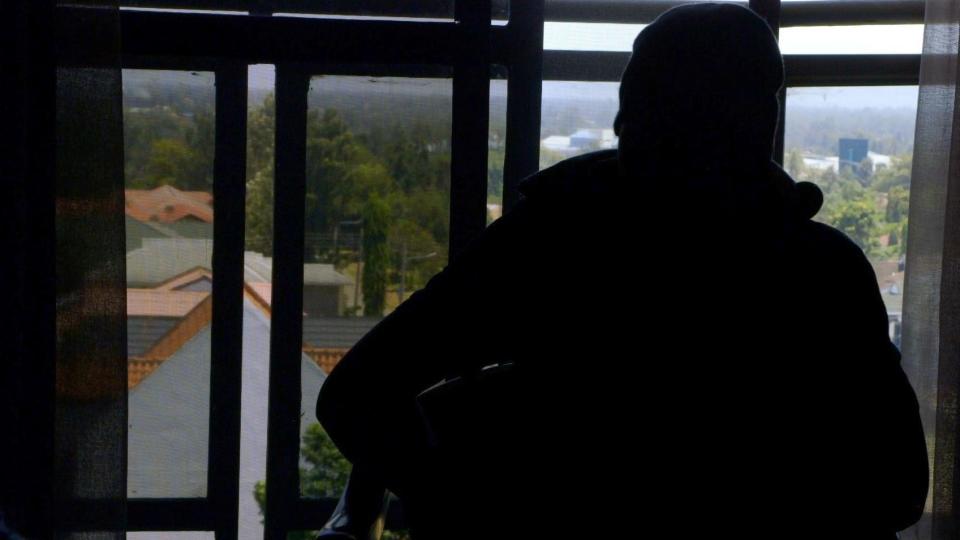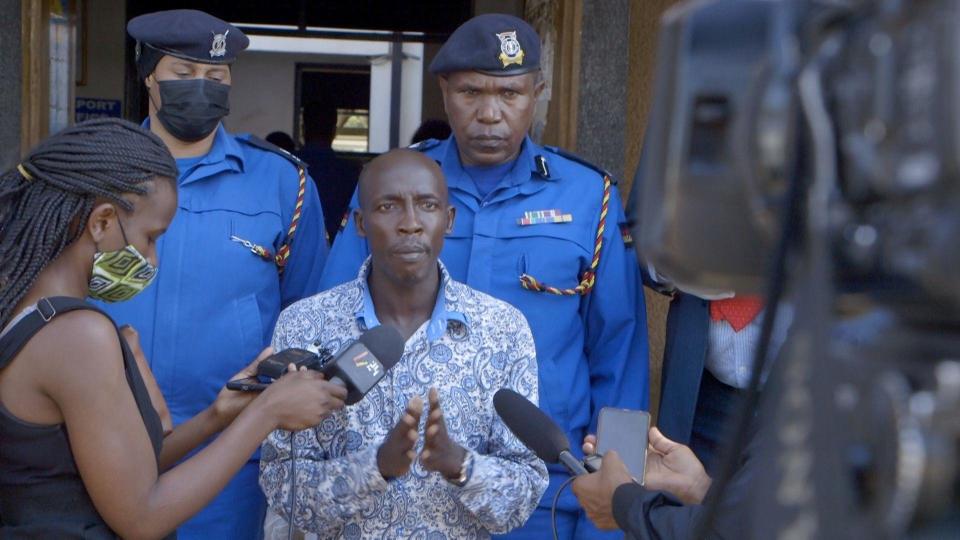As Kenya battles a rise in violent crime, BBC Africa Eye follows a former criminal as he tries to persuade men to hand over their illegal firearms, one gun at a time.
“The worst thing I ever did was kill. I killed a man”, says the young man after agreeing to be filmed on condition of anonymity.
“I didn’t feel anything, because I was drugged. I felt like I had killed a fly.”
Samuel, whose real name is not, is in Kisumu, on the shores of Lake Victoria in western Kenya, to meet King Kafu, an ex-convict who now helps people escape crime.
He is visibly nervous. He has an AK47 hidden in a location that he now wants to hand over to the police.
Asked why, he says: “The day will come when my family will have nothing to eat. They will get hurt eventually.
“If I go out and get shot, no one will be there to take care of my family. So I decided, with all my heart, to let myself give this thing back.”
Figures from the Kenya National Bureau of Statistics show that violent robberies increased by almost 20% last year.
Illegal firearms are smuggled into the country through its porous borders, making civilian gun ownership in Kenya unmatched in East Africa, according to the Institute for Security Studies.
The latest figures from the Small Arms Survey, which tracks global gun trends, suggest that there are around 750,000 firearms in civilian hands in Kenya. That’s more than the army and police combined.
Kafu acts as an intermediary between people who want to hand over their weapons and the police.

He was 15 years old when he started working in crime. He started with stealing people’s bags, but then moved on to armed robberies.
In 2003, he was sentenced to four years in prison for robbery.
Samuel contacted him on Instagram asking for help. Kafu spoke to local police in Kisumu and they agreed to accept Samuel’s gun, promising that he would not be investigated under a well-established amnesty program.
But when it came time to find the AK47 again, Samuel didn’t show up.
Kafu, now 40, is a presenter on Ghetto Radio, a station popular with young people in the slums of the capital, Nairobi, and uses his platform to speak out against gun violence.
“After my release, I discovered that many of my friends who were involved in crime had met tragic ends, most of them dying as a result of their criminal lifestyle,” he says.
That’s what made him change his life.
“No one is born a thief. But even if young people don’t have work, we are telling them that crime is not good. People should return their illegal weapons to the government,” he says.
Over the past 20 years, the Kenyan government has used amnesties as a way to control armed crime, promising immunity to those who surrender their weapons.
Thousands of weapons were handed over to authorities. But this is a small fraction of the illegal firearms in circulation.


A criminal told BBC Africa Eye that acquiring a gun in Kenya was easy. He said he could buy one for 40,000 Kenyan shillings ($300; £240).
Kafu says people willing to hand over their illegal firearms to authorities fear that they themselves could become a target.
The police were accused of being involved in extrajudicial killings. Kenyan charity Missing Voices says more than 800 people have died at the hands of agents in the past five years. Most of them were poor young people.
In Nairobi, BBC Africa Eye goes with Kafu to meet another man, who we call John, willing to hand over his gun.
“I’m ready to give it back. You go and kill someone. You will spend the money you get within three months, but you have spilled someone’s blood. You hurt someone and are left with the blame. This life is a problem.
John’s biggest fear when going to the police was that something would happen to him.
He describes what happened to a friend who confided in a community elder that he wanted to hand over two weapons. He was detained by police and found in a morgue a week later.
“The problem is trusting who to tell, how to deliver,” he says.
There have been widespread allegations that Kenyan police contracted and sold firearms and ammunition to criminals. BBC Africa Eye presented this claim to the police, but they did not respond.


Kafu called the local police chief to reassure the man about his safety and a few days later they went to the police station together with the gun.
The officer checked the serial number of the gun and it was marked KP, short for Kenyan Police.
At a police press conference announcing the return of the weapon, Kafu made a public statement to ensure that the police repeated their commitment to keeping these men safe.
“I want the government to be clear with the youth. When they return these things, will they disappear or will they be supported? I ask the government to cooperate. These young people want to be shown a little love.”
This alone won’t stop violent gun crime in Kenya, but Kafu says it’s a start. Criminals trust him, he says, and he hopes he can encourage more people to hand over their guns without fear of reprisal.
“We are trying to fight for these young people,” says Kafu.
More BBC Africa Eye stories:


Go to BBCAfrica.com for more news from the African continent.
Follow us on Twitter @BBCAfricaon Facebook at BBC Africa or on Instagram at bbcafrica






































/cdn.vox-cdn.com/uploads/chorus_asset/file/25469370/Custom_recording_settings_in_Landscape.jpeg?w=150&resize=150,150&ssl=1)
